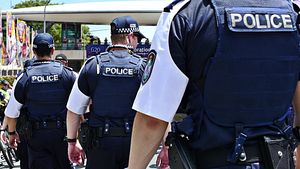Police accountant Curtis Cheng died from a gunshot wound to the back of his head on Friday, October 2 in Sydney’s Parramatta. It was, say authorities, an act of terrorism, carried out by 15-year-old Farhad Jabar who was soon afterwards shot by police. Once again terrorism on Australian soil is being debated. On Thursday, October 15 the government held a Countering Violent Extremism summit in response to the shooting, and subsequent arrests. Tolerance and understanding, said Prime Minister Malcolm Turnbull, have their limits.
Not so long ago, the government put out a publication advising the public and community on violent extremism and radicalization. The coverage it got centered largely on one of a small number of case studies. Was this case study racist or anti-Islamic? No. The story of Karen followed a girl who got interested in “alternative music” before becoming a hardline, tree dwelling eco warrior. Then she found safer ways and means to express her concern. Alternative music? Is this the 1950s, seemed the consensus of the small number who bothered with the story at all. The well-meaning publication took an “elephant in the room” approach to Islamic extremism. In fact, the word “Muslim” showed up just once, in the last case study, and in passing.
However, all current discussions are centered on Islam and extremism. Given that Jabar was religiously motivated, and along with two other young men who have since been charged was apparently an ISIS sympathizer, it is understandable. Raban Alou, interviewed last year by Fairfax Media, was one; his older brother Kawa was detained as part of the September raid, which did not lead to charges. While Jabar was not under surveillance, some of those arrested in relation to Cheng’s murder had been watched for some time.
Terrorism laws will now be expanded again, next month. New South Wales has asked for, and been given by Attorney-General George Brandis, a lowering of the age of control orders from 16 to 14, which some civil liberties groups have said violates a child’s human rights. “It will… provide greater protection to sensitive information in control order proceedings and protect against the incitement of genocide,” said Turnbull. The prime minister also said that 24 had been charged with terrorism-related offences since December 2014, “more than a third of all terrorism-related arrests since 2001.
Control orders do not have to be issued to someone who has been charged; permission from the courts and the Attorney General are enough. Those under control orders may have to wear tracking devices and may be prohibited from visiting certain places, communicating with certain people, or even using some kinds of technology.
Malcolm Turnbull’s speech since Cheng’s murder has seemed more measured than his predecessor’s might have been (though it’s worth remembering that directly after the Lindt Cafe siege, Tony Abbott was careful to point out that all Catholics are not blamed for the actions of the IRA and a measured approach to Islam must be taken). Still, Turnbull too has said there would be no tolerance of extremism and that the Muslim community must be a partner in reducing homegrown extremism. This does sound more in line with the handbook put out by the government, which stresses community, familym and government engagement (but avoids mentions of Islam).
Are control orders and community-based approaches to CVE mutually exclusive? Greg Barns of the Australian Lawyers Alliance believes control orders may radicalize young people, “The way to do it is to get in amongst these communities and get in amongst their leaders to ensure these young people are not being radicalized – but you don’t do that by putting control orders on people,” he said. CVE expert Greg Barton believes otherwise, saying it could protect young people from “malign influence.” The debate will doubtless continue.
































